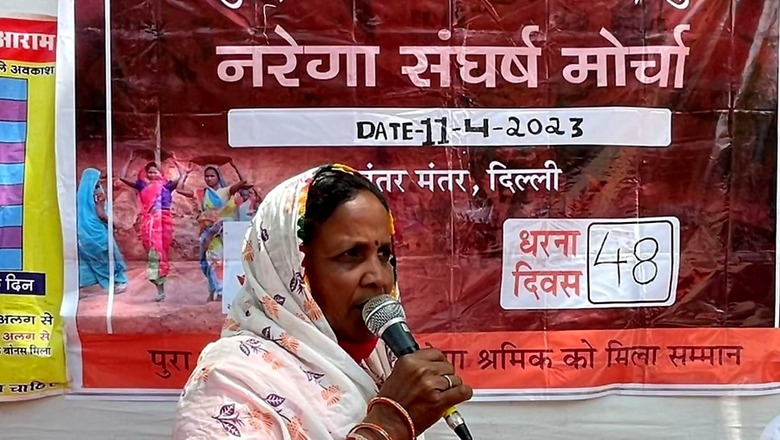
views
Kesar Devi is still awaiting wages for the 35 days she worked between January and March this year under the Mahatma Gandhi National Rural Employment Guarantee Scheme (MGNREGS). While she had worked for all these days, attendance was registered only for a few days in the National Mobile Monitoring System (NMMS), the app-based attendance system.
The work site supervisors told her to come later to get the remaining attendance registered. Moreover, her bank account is not linked to Aadhaar and, hence, she was told to go get KYC done first in order to claim the wages.
According to the Ministry of Rural Development’s (MoRD) Management Information System (MIS) portal, since the NMMS app was launched, the number of ‘person days’ generated between January and February 2023 fell to 34.59 crore, which is much lower than the number of person days generated in pre-Covid years in the corresponding period. As per government data, the number of ‘person days’ generated under the scheme during the same period in 2021-22 was 53.07 crore, in 2020-21 it was 56.94 crore, 47.75 crore in 2019-20 and 47.86 crore in 2018-19.
From a village in Rajasthan’s Dungarpur, Kesar came down with a group of women workers to join the sit-in demanding the rollback of the new app, increase in wages as well as the number of ‘person days’ allowed per household, at Jantar Mantar in the national capital. The protest has been going on for over 50 days, with hundreds of workers from villages across states joining in each day seeking relief from the central government.
“I got work under MGNREGS for 13 days in January, 10 days in February and 12 days in March. I haven’t got payment for any of the days so far. The officials at the site just told me there is some issue with the app and to come back later. I don’t know what to do. We are just hand to mouth. On days that I don’t get work, there is no food for us,” said Kesar, 32, who is the sole breadwinner for her family of three.
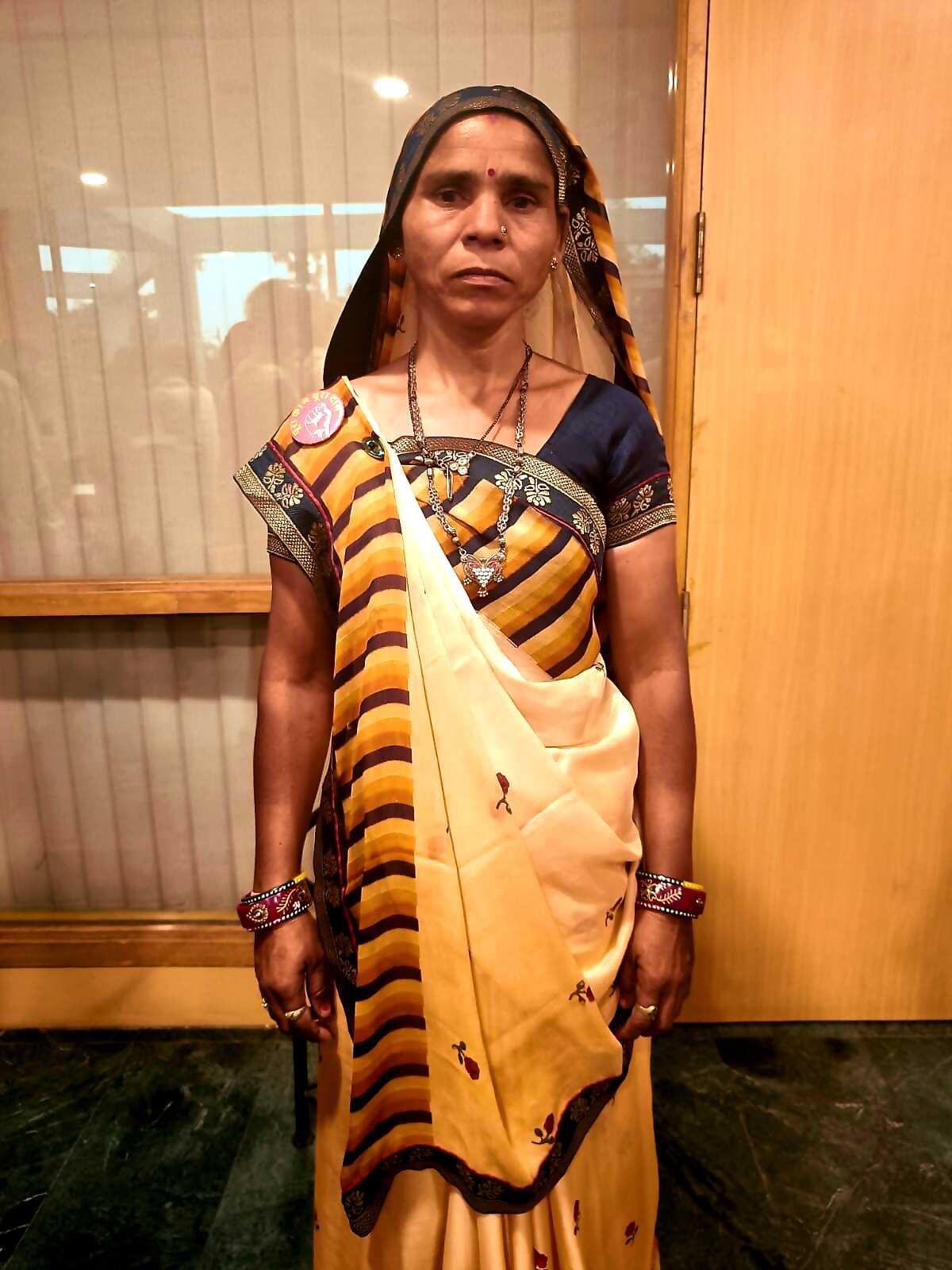
Issues like poor connectivity in uploading geotagged photos for getting marked present on the NMMS app and not having Aadhaar-linked bank accounts have marred the workers, most of who, especially women, depend solely on the employment guarantee scheme to support their families.
These issues are in addition to the largest-ever budget cut in the scheme this year, which according to MGNREGS activists, has already caused a 30% crash in employment available under the scheme.
Complicated App Hits Workers
The NMMS app is used to record workers’ attendance at worksites, by uploading geotagged photographs twice a day. It was made mandatory across all worksites from January 1, 2023. The app was introduced in order to weed out corruption and allow more fiscal transparency.
The Ministry of Rural Development had, on January 30, also announced that all MGNREGS payments will be made only via Aadhaar-based Payment System (ABPS) from February 1, the deadline for which was later extended to March 31. However, according to the MoRD’s own MIS Report, only 49% of NREGA workers are eligible for ABPS as on date, which means over 10 crore workers across the country.
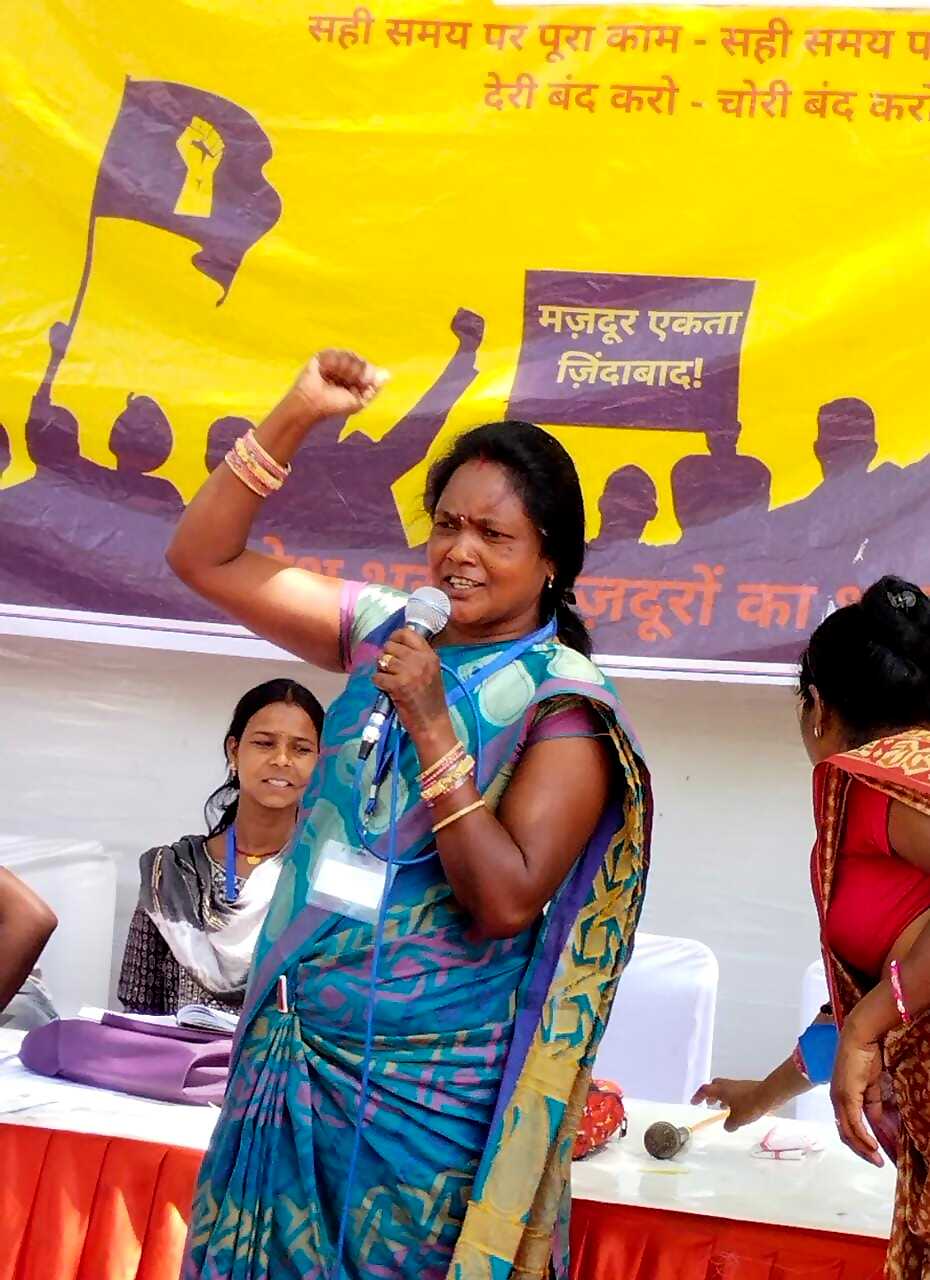
Until last year, the scheme allowed a flexible wage-payment system with both account-based payment and Aadhaar-based payments being operational.
Around 27.5 crore workers are registered under the scheme. The app-based attendance and Aadhaar-based payments have been made mandatory criteria for payment of workers’ wages under the scheme.
“The entire system of seeking and getting work under the scheme and then to get paid for the work has been made so tough with the budget cuts, the new app for marking attendance and this ABPS that workers are just caught up in doing the rounds of block offices and banks ending up spending whatever little money they have,” said Balu Lal, head, Asangathit Mazdoor Union, Rajasthan.
NREGA Sangharsh Morcha, an umbrella body of workers, has been seeking relief from these mandatory changes. The workers, along with activists from People’s Action for Employment Guarantee (PAEG), gave a charter of the workers’ demands to Secretary, MoRD, on April 3.
The worker groups have cited examples of issues in registering digital attendance.
In Jharkhand’s West Singhbum district, workers are being given zero attendance in online records despite being marked present on the physical muster rolls and having completed the works assigned to them.
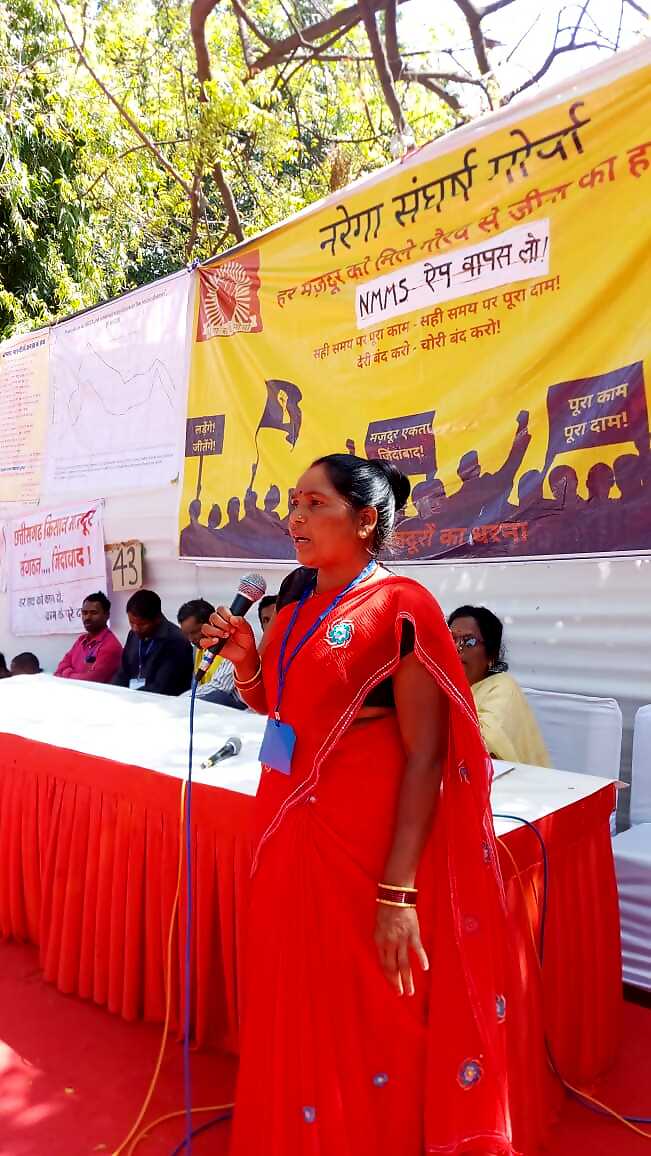
Sharada Gopal, co-founder, Jagruta Mahila Okkoota, from Karnataka’s Hindalgi village said none of the worksite supervisors have access to smartphones, making it impossible to mark attendance on the NMMS app.
“As a result, no work has been carried out under the scheme this year, depriving many households of their sole source of income. The scheme is essentially important for women, who are single-handedly running their families and raising their children by bringing women in the paid workforce. These issues in payment and hence falling out of the scheme will only push us backwards,” she said.
According to Nikhil Dey, founder of Mazdoor Kisan Shkati Sangathan, a group of social activists and economists working for rights of MGNREGS workers for years, despite flagging problems in the app during its pilot run, the MoRD has not addressed these issues.
“It’s now rolled out countrywide and made mandatory even as more than 1 lakh Gram Panchayats across the country do not have a single NMMS device in use. Besides, in most rural areas and pockets, there’s no network coverage. Under-calculation of wages and technical errors are common. Also, women without smartphones can no longer be a MGNREGS Mate. With all these issues in the use of the app, denying wages to workers is taking away their right to work guaranteed under the scheme,” said Dey.
Dey added that there is no state-level monitoring of the photos uploaded on the app. Once uploaded, if there’s a glitch or a wrong picture sent, it could not be fixed at the block or zonal or the state, it is controlled directly by the Union ministry, he said.
“Moreover, the complicated system of getting KYC done for ABPS has left out a large number of workers from even being eligible to seek work, as wage list is not generated for those without it. Bank and block officials don’t know how to rectify ABPS failures. Multiple trips for workers to short-staffed banks ends up in workers having to spend one day’s wages to get their weekly wages,” said Dey.
Government officials react
In response to News 18’s query, ministry officials said they are looking into the issues being raised while maintaining that NMMS is a simple and clear method of marking attendance, which has fast-tracked transfer of payments to workers, and hence, there was no question of a rollback.
“The only issue with the use of the app is with internet connectivity not being available at all times and places across rural pockets. To resolve the same, we have made the app available offline as well, which means that if workers are on site (within range) they may just upload the photo once anytime until midnight and their attendance will be marked. Also, we have checked with panchayats, most mates have smartphones and in case there are some who don’t, the problem will be fixed,” a senior MoRD official said.
In place of a physical muster roll, the official further said, the only change with NMMS is that now there is an e-muster roll, which records attendance real-time.
“The e-muster roll has helped make payments faster, for example, 93% payments under the scheme were transferred just within 15 days. In the physical muster roll, this would take a month or more to verify and then make the transfers,” the official said.
With regard to delay in wages due to ABPS, the official said that for those who have worked while not having Aadhaar-enabled accounts, the payments were held up and will be made through the old system. There was a secretary-level meeting to review this on April 1 and the deadline for linking Aadhaar with bank accounts for states has been extended till June 30.
“Aadhaar-seeding has been made mandatory to plug leakages, as in the old system there were issues with fake or ghost workers being transferred wages and genuine workers losing out on their hard-earned money,” the official said.
Read all the Latest India News here

















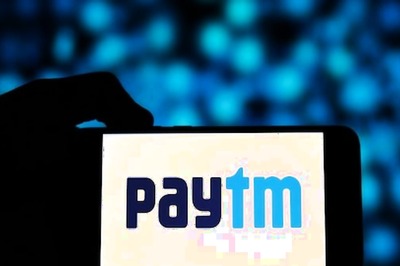


Comments
0 comment